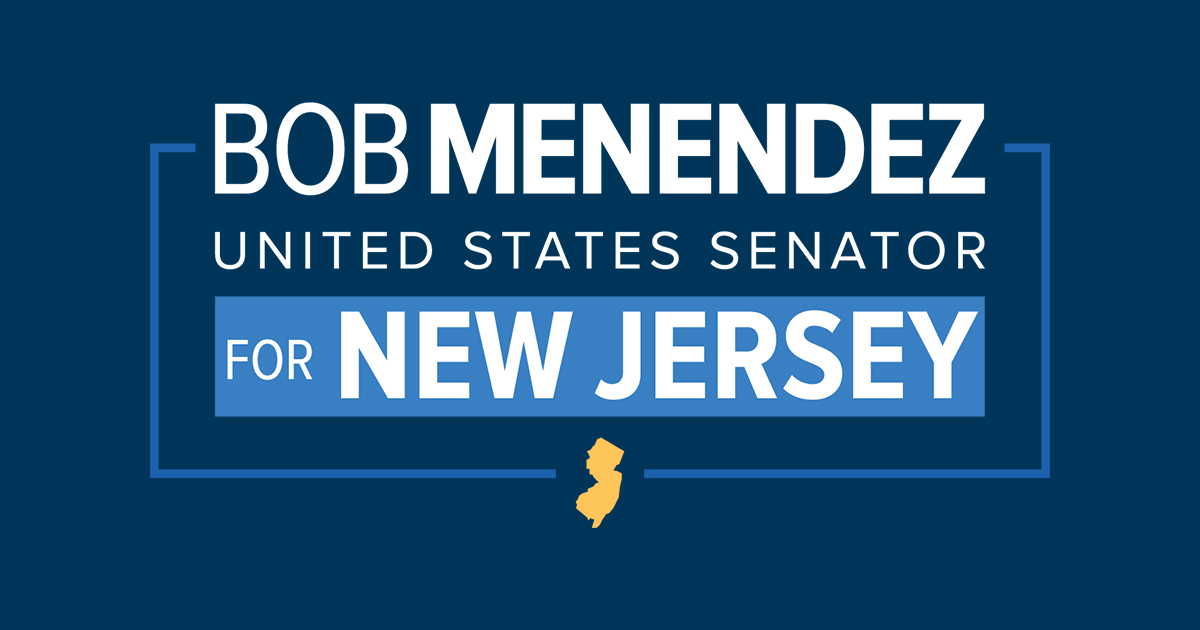Source: United States Senator for New Jersey Bob Menendez
WASHINGTON, D.C. – U.S. Senator Bob Menendez (D-N.J.) slammed the Federal Emergency Management Agency’s (FEMA) recent proposal that will bar new homes built in flood-prone areas and small businesses from receiving National Flood Insurance Program (NFIP) coverage. The Biden Administration proposal, which resembles many of the points detailed in the Trump Administration’s policy plan to overhaul NFIP, was discussed today at a Senate Banking, Housing and Urban Affairs Committee hearing.
“I want to note that I find it highly unusual that FEMA sent to Congress an unsolicited 17 section NFIP reauthorization bill that in my view would do significant harm to the program and homeowners alike. Many of the ideas reflected in this proposal were part of a 2017 House Republican bill that was rejected by the Democrats majority,” said Sen. Menendez, a senior member of the Banking Committee. “In fact, just last week E&E News noted the similarities between this proposal and a proposal written by then-OMB Director Mick Mulvaney during the Trump Administration. FEMA’s proposal will lead to more people uninsured and unprotected against more frequent storms, higher costs for families, and higher barriers to owning a home and a small business.”
CLICK TO WATCH THE SENATOR’S EXCHANGE
In May, FEMA sent a proposal to congressional leadership outlining the reauthorization of the NFIP for ten years. Most of the points laid out in the proposal, are based on ideas that were outlined in a letter to Congress by former Office of Management and Budget Director Mick Mulvaney in 2017 as recently reported by E&E News.
Last year, Sen. Menendez introduced his National Flood Insurance Program Reauthorization and Reform Act which tackles systemic problems with flood insurance, puts the program back on solid fiscal ground, and reframes the nation’s entire disaster paradigm to one that focuses more on prevention and mitigation in order to spare the high cost of rebuilding after flood disasters.
The Senator also blasted Risk Rating 2.0, FEMA’s new rating system, which went into effect last October and is expected to raise premiums on 80% of NFIP policyholders nationwide. Sen. Menendez highlighted a Redfin report showing 84% of policyholders in majority-Hispanic communities will face the largest share of increases compared to other racial and ethnic groups. When the Senator asked if FEMA considered whether the Risk Rating 2.0: Equity In Action would disproportionately burden majority-Hispanic communities, David Maurstad, Deputy Associate Administrator for Resilience at FEMA, simply said “no.”
Nearly 20% of policyholders are expected to drop their insurance because of the hikes, according to FEMA. Last September, Sen. Menendez called on FEMA to delay the implementation of Risk Rating 2.0.
Doug Quinn, Executive Director of American Policyholders Association testified about the importance of affordable flood insurance during last week’s Banking Committee hearing. Quinn is a Marine veteran who moved back into his newly-rebuilt, elevated home in Toms River’s Silverton section in 2019 after Superstorm Sandy sent three-foot waves crashing into the family’s ranch-style house, inundating it with four-foot-deep floodwater. Despite a $254,000 damage assessment and $250,000 in flood insurance coverage, the Quinns initially received only $92,000, of which their mortgage company held half, leaving them with little money to remediate and rebuild.
During his opening testimony, Quinn called on Congress to pass the Senator’s NFIP Re Act in order to keep premiums affordable and to eliminate fraud, waste and abuse in the program.
Sen. Menendez has been the leading advocate in Congress for an overhaul of the National Flood Insurance Program (NFIP) since Superstorm Sandy devastated New Jersey nearly 10 years ago.
In June, Sens. Menendez and John Kennedy (R-La.) introduced the National Flood Insurance Program Consultant Accountability Act, which would enhance the Federal Emergency Management Agency’s (FEMA) ability to protect homeowners from parties found guilty of fraud that involved in NFIP property damage assessment.
Sen. Menendez first exposed the problem of widespread lowballing of flood insurance claims during Congressional hearings he chaired in 2014, and then successfully pushed FEMA to reopen every Sandy flood insurance claim for review, which compensated Sandy victims with more than $260 million in additional payments they were initially denied.
Sen. Menendez’s Homeowner’s Flood Insurance Affordability Act was signed into law in 2014 to address skyrocketing rates many Sandy survivors were encountering. In 2013, he shepherded the original $60 billion federal Sandy aid package through Congress.
